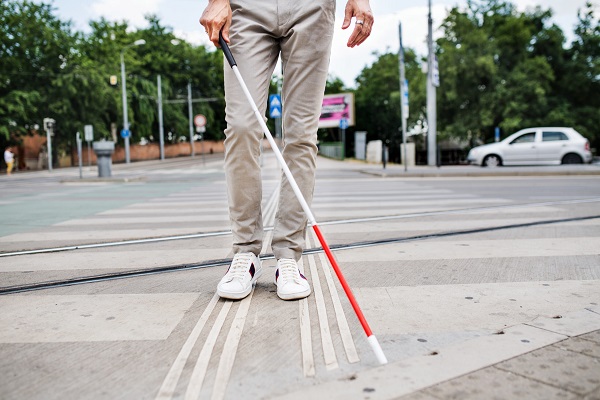Losing sight is most often an incremental process, not a one shot deal. Progressive vision loss
comes at a pace that allows us to compensate, unlike a sudden, dramatic loss, but both can
turn our lives upside down for a time. We might even forget, in the midst of these changes, the
power we possess as human beings to tap into our natural resilience. Which is not to say that
any of this is easy, and no matter how many times we’ve adjusted to more vision loss, each
new event can be a significant challenge. The thing to remember is, we can and will adjust,
again.
A change in vision may be disconcerting at any level. Some patients find a 5 or 10 point decline in acuity unnerving. For others, larger dips allow for quieter compensations. All the while we’re hoping for little or no change, and even when we are doing all the right things, more vision loss can occur. Maybe it’s temporary, just a bad day or a stressful week, but hopefully nothing permanent. This, of course, warrants an eye exam. Unfortunately there may be no treatment to correct the problem, or it’s possible the eye doctor will not see what we are seeing, which does not mean it’s not happening or nothing can be done.
It can bring on an overwhelming sense of anxiety, despair and fear. We grieve the lost vision
and begin, once more, to maximize our remaining sight. We make peace with the new normal.
It’s all about adjusting, again. Talking with others who have experienced progressing vision loss
is therapeutic, as is talking with a psychotherapist. Find vision loss resources, such as
adjustment classes near you. Find the compensatory strategies that maintain confidence in
tasks of daily living, for comfort at home, at work, and out in the world.
Here’s more content from OE to help with adjusting.

a yellow background.
The Art of Adjusting
Change is notoriously difficult, especially when it is unwelcome. Adjusting the way we do things to compensate for vision loss requires — flexibility. A willingness to change is the gift that keeps giving. Read More

Adjusting Your Home for Vision Loss
You know coping with vision impairments is a topic of the times when it’s covered in the Real Estate section of the New York Times. Be assured, you are far from alone. The likelihood of experiencing some type of visual impairment becomes more prevalent with age and the numbers affected will double over the coming decade. So it’s a good idea to get your house in order. Read More

10 Kitchen Tips for Low Vision Cooks
If you enjoy preparing good food and consuming it, low vision will not bring an end to that. It requires some adjusting, in very much the same way all other daily activities do. If cooking is not your thing, the fact remains, preparing food and eating is a necessity. Read More

Adjusting to vision Loss on the Job
Legal blindness does not have to be a career-ending injury. The need for making adjustments at work may seem like an overwhelming proposition, but plenty succeed while building the skills and continue working to a retirement of their own designation. On the other hand, giving up on a job prematurely is often regrettable. Before you start thinking about leaving a job, think about staying. Read More

city street.
Surprises Contained in the White Cane
Vision loss is an intrusion that we all deal with in our own way. Our ability to thrive is contingent upon a willingness to make large and small adjustments to compensate for diminishing eyesight. Knowing all that did not prevent me from heavily avoiding the white cane. Making peace with this mobility device is often a complicated personal process. Read More

Is Vision Rehab the Best Kept Secret?
Patients with progressing vision loss, for which there is no treatment or correction, are frequently told, “Nothing can be done.” The statement is meant, specifically, to say there is no medical intervention available. Too many times the patient interprets the words to mean, “There is nothing anyone or anything can do for you.” But that’s not true. At this point in the dialogue between doctor and patient, would be a good time to consider vision rehab services. But it often goes unmentioned. Read More







